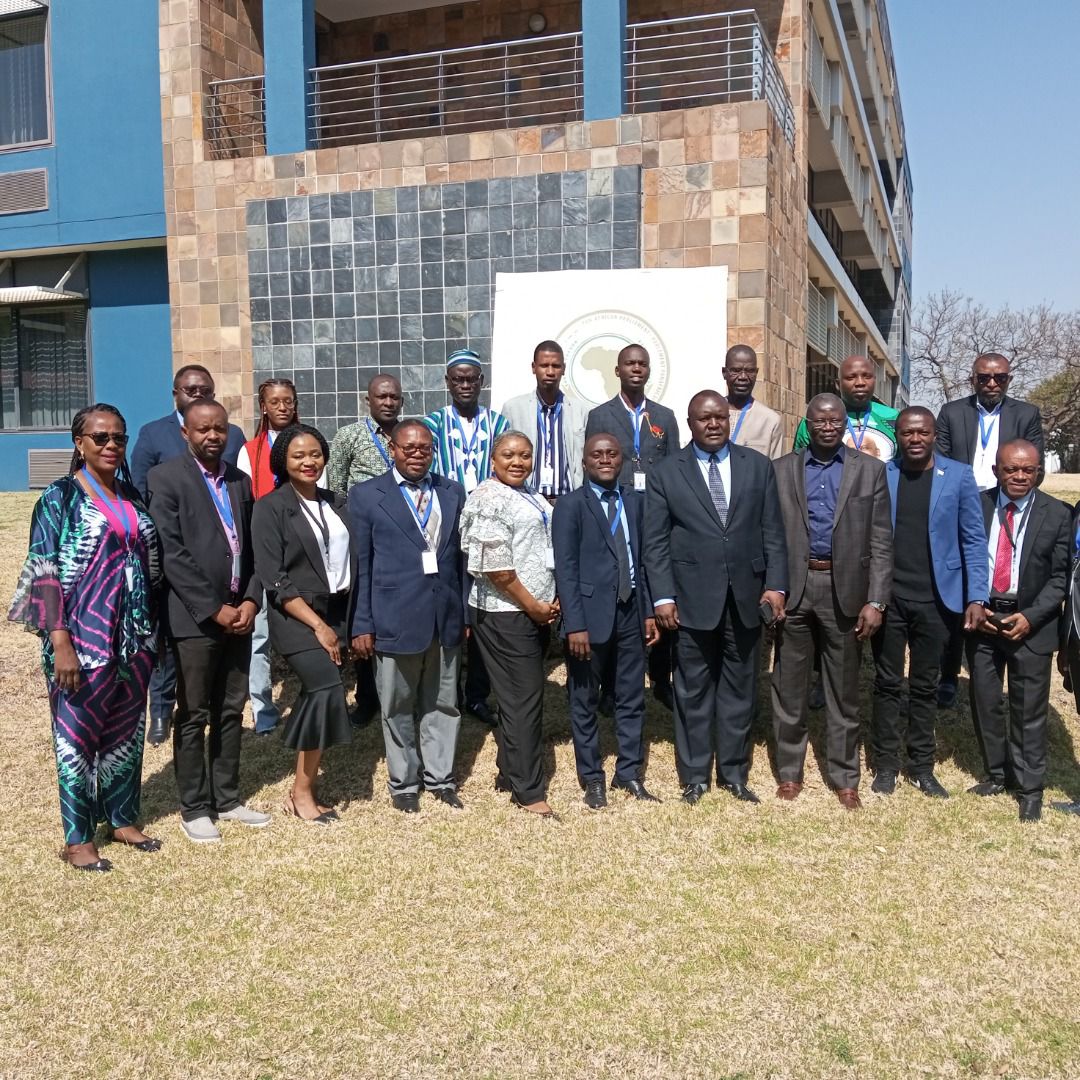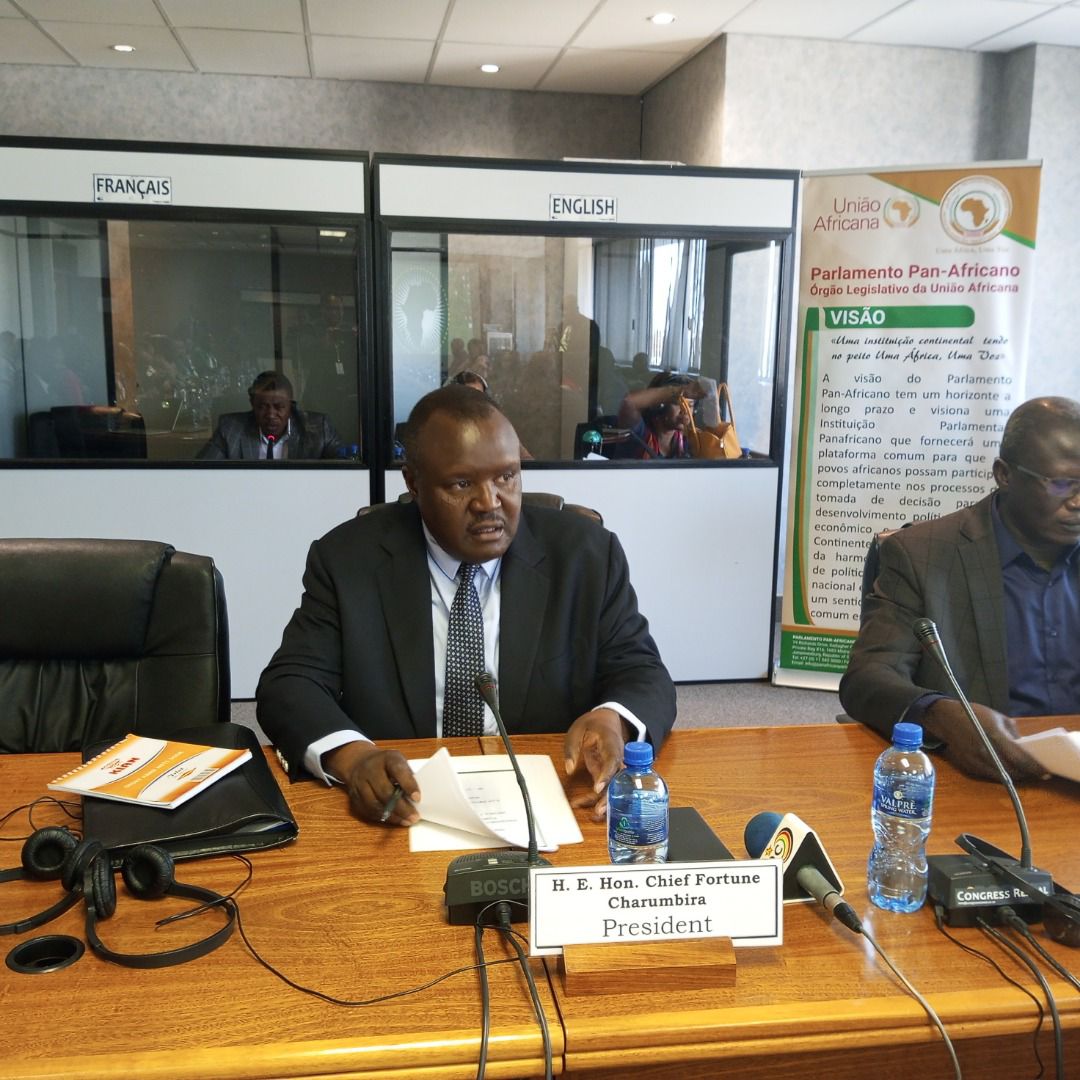|
Getting your Trinity Audio player ready...
|
Media is an indispensable partner and vehicle through which the Pan African Parliament (PAP) will be able to carry out its functions and deliver on its mandate, the continental body’s president, Chief Fortune Charumbira has said.
Chief Charumbira made the remarks today in his keynote address during the second and final day of a capacity-building workshop underway in Johannesburg at the PAP Headquarters that is aimed at increasing African citizens’ awareness of the PAP’s mandate and activities, while enhancing public access to PAP’s information. The workshop was held by the PAP in collaboration with the African Parliamentary Press Network (APPN).

“As I make my address to you, let me quote Malcolm X who says the media is one of the most powerful institutions since it controls the minds of the masses. We are gathered here as Africans to discuss how best can make PAP more effective. As the PAP, we recognise the powerful role of the media to disseminate, communicate, and inform people across the world about certain things that confront us,” Chief Charumbira said.
He gave a general overview of the situation whereby the African continent is largely viewed as laughable because it is lagging in terms of meeting the aspirations of its people and urged the media to change that narrative in a positive way.
“Yes, we recognise that the quality of life is low on the continent. While it is fashionable to portray this sorry state of affairs in the media, we need a paradigm shift to be solution providers as the media. As we raise facts and issues about Africa, from our interaction with society, we should interrogate ways of how media can help Africa to address specific issues on the continent.
“It’s important to report on what has happened and give updates on the situation on the ground but it’s more important to report as the media on why and how we can address the challenges facing the continent. Let’s not end on the what. Go beyond statistics and be partners in transforming situations,” Chief Charumbira said.
Chief Charumbira told the media that the PAP is mandated to debate the budget of the African Union.
“The AU budget is among the issues and programs that the PAP should be interrogating. The media should be alive to that. They should understand the milestones in terms of budget allocation. The media should play an oversight role by following up on AU programmes at the national and international levels. It should be able to ask questions about the AfCFTA. We expect a strong alliance between PAP and the media.
“The PAP is also supposed to participate in the monitoring of elections which are a means to democratic governance. Without democratic governance, there is no democracy. The media should ask questions like what is the level to which elected officers are accountable to the electorate and ask if citizens are making an input into the governance.”
He gave an example where Burkina Faso MPs decided to extend the term of office of the President. Beyond the 2 terms, they extended the tenure. The citizens demonstrated, marched to Parliament, and burnt the Parliament building. Thus democracy should be consultative.
He invited the media to help in coming up with contributions to themes like food and nutrition security that are adopted by the AU.
“What are the practical aspects of the themes? What happened to the theme of silencing guns? Although a theme is annual, it gives direction on where to go about the issues. Are the guns silent on the continent? After the theme lapsed, we witnessed coups in Mali, Guinea Conakry, and other countries.
“We agree that the continent is not doing enough in driving development. We need to get Africa out of the current jinx of not performing well. I would like to make a reference to the World Bank Millennium Report of 2000 “Can Africa seize the New Millenium?”. It noted that up to the year 2000, Africa was the last in terms of development. One of the slides was Africa at night. In a presentation, all the other continents were shining while Africa was dark. There is then a need for the media to follow up on Agenda 2063. Is the wait worth it? Are we waiting to die? The media should tell the driver. As PAP, we pledge to play our part in pushing for freedom of expression. However, this must not be used as a scapegoat to violate the rights of others. Ethical and responsible journalism should be the guiding principle,” Chief Charumbira added.
In his welcome remarks, Hon Gali Massa Harou, the Acting Clerk of PAP agreed with Chief Carumbira that the training organised by the PAP’s media and communication unit was of great importance.
“The PAP is a continental public institution with a mission of expressing the concerns and aspirations of the African people. The media, in turn, disseminates the information. The media is an important partner as highlighted in the African Governance Architecture which is meant to promote democracy, democratic governance, and the rule of law. Thus, the media is the vehicle to disseminate information and activities of the PAP as well as the aspirations of the African people. The workshop is a platform for the media to acquaint themselves with Parliamentary activities and initiatives as well as to convey information about African people’s aspirations. The workshop will be an important step towards achieving the objectives of the PAP,” he said.
Dr. George Mukundi said the African Governance Architecture supported the PAP media training workshop. He said after half a century since the formation of the AU, there was a solemn declaration that led to the birth of the Africa Agenda 2063 and the African Governance Architecture in 2013.
“However, as it stands, a few of the shared agenda points are being implemented. There was also a danger of AU organs operating in silos. There were more than 12 institutions working on the governance areas, for example. There is a need for coordination and coherence. There is a need to include African citizens in the conversations, and debates on Africa We Want. The need for knowledge-sharing, awareness raising, and sensitization on shared values led to the formation of AGA,” he said.






